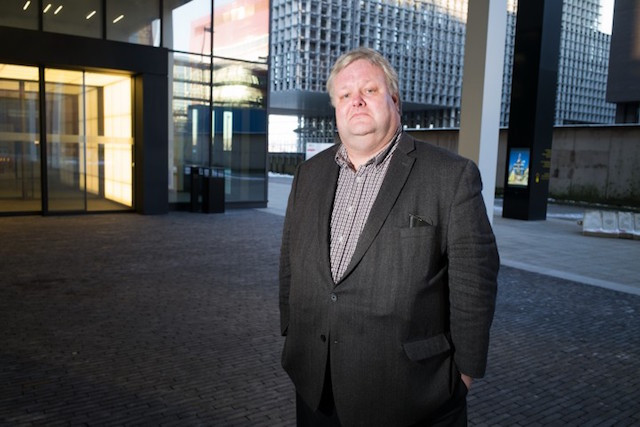On 19 January, the European commissioner for economic and financial affairs, taxation and customs, Pierre Moscovici, called for “more convergence, more institutional tools, more political tools.” Faced with a growing threat from populism “we need more Europe”, he added. Such talk was commonplace two decades ago, but is rarely heard now.
“There used to be an almost unthinking integrationist discourse from most of the founding member states,” said Robert Harmsen, a professor of political science at the University of Luxembourg. “Now there are calls for more European mechanisms here and there to tackle specific problems, but generalised calls for broad European integration are now relatively rare,” he added.
Harmsen thinks the tone of debate has shifted and Europe’s leaders focus has moved to protecting and reforming existing achievements. And he doesn’t think this change of emphasis has much to do with pressure from anti-EU populists.
“The European project has matured, with debates about substantial areas of policy being part of the normal political process,” he said. “It is important to draw a distinction between posing fundamental questions about membership and the integrity of the EU, and limited criticisms about reforming the common agricultural policy and regional policy: this is a sign of maturity in Europe.”
The different way continentals talk about Europe has contributed to anti-EU sentiment in the UK. On the mainland, the call for “more Europe” was to a certain extent virtue signalling. It demonstrated a desire to bring to an end the cycle of conflict which had been a fact of life on the European peninsular since the Stone Age. Also, for the majority of European states, the EU signifies movement away from dictatorship and for the assertion of national sovereignty.
Britain, on the other hand, has not experienced war on home soil and dictatorship for centuries. The UK’s decision to join the European Economic Community was mainly a dry, intellectual decision which followed the shock of imperial and relative economic decline in the 1950s and 1960s. Hence the emotionally rooted talk of the need for “ever-closer union” rarely rang true for Brits. The country made the mistake of taking continentals seriously and literally.
Different opposition
These different outlooks play into the different ways that anti-EU sentiment is perceived in the UK and elsewhere in Europe, Harmsen argues. “On the continent, the discourse is more about opposition to elites and a perception of a democratic deficit, whereas British euroscepticism is more about cultural othering.”
In other words, although all populists have a similar set of attitudes opposing institutions and people in power, British people are more likely to feel an added layer of alienation from their European neighbours. This is not to forget the London press, much of which is unique in its virulent opposition to the EU.
It is somewhat ironic that Britain is leaving just when EU leaders are speaking and acting in a way more in tune with British culture.
This article was first published in the February 2017 issue of Delano magazine. Be the first to read Delano articles on paper before they’re posted online, plus read exclusive features and interviews that only appear in the print edition, by subscribing online.
